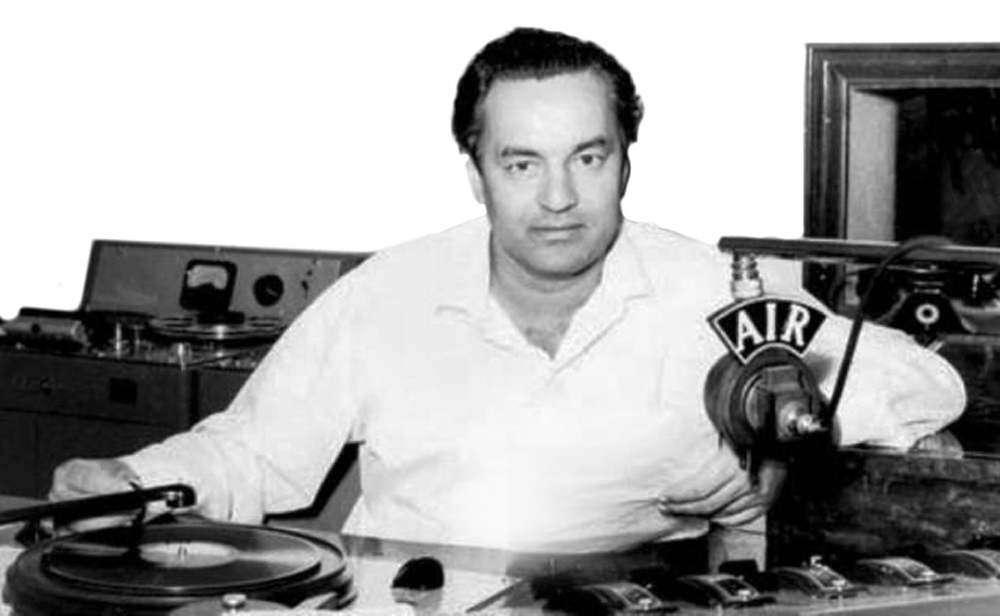
Way back in 1945, KL Saigal heard the song Dil jalta hai jo jalne do, which was all Saigal in voice and style and a masterpiece of melancholy. “I don’t remember singing this song,” he said. He was astonished to hear that it was actually rendered by a young singer named Mukesh for the film Pehli Nazar, with music composed by Anil Biswas. Saigal described Mukesh as “Dard ka shehzada” (Emperor of pain).
Anil Biswas, and later Naushad, urged Mukesh to get out of the Saigal mould and carve his own style. And that he did in nearly a thousand songs including some of the most memorable ones in Hindi cinema.
Mukesh may have lacked the vocal range of Rafi, the flamboyance of Kishore, the classical charisma of Manna Dey, but the sachai in his sonorous voice — a moving honesty, simplicity and goodness — made his songs lovable. Two Mukesh immortals, Awara hoon and Mera joota hai Jjapani, are identified not just with Mukesh or Raj Kapoor but with India. They are hummed with relish as much in Moscow or Manhattan as in Mumbai.
While travelling on road, former Pakistan Prime Minister Benazir Bhutto, an ardent Mukesh fan, would listen to one of the many Mukesh cassettes she kept in her car.
An anecdote. In the 1950s, visiting Chinese Prime Minister Chou en-lai was entertained to live Bollywood music at a party in Bombay hosted by Governor M C Chagla. The singers: Talat Mahmood and Geeta Dutt. The VIP guest suddenly asked whether he could listen to Awara hoon. Talat and Geeta knew the tune of this Mukesh song but not the words. A solution was worked out. They sang the first few lines of Awara hoon, then retained the tune of this song but used the words of some other song they knew. Talat and Geeta cloned Mukesh effectively; Chou en-lai was pleased to hear his favourite song.
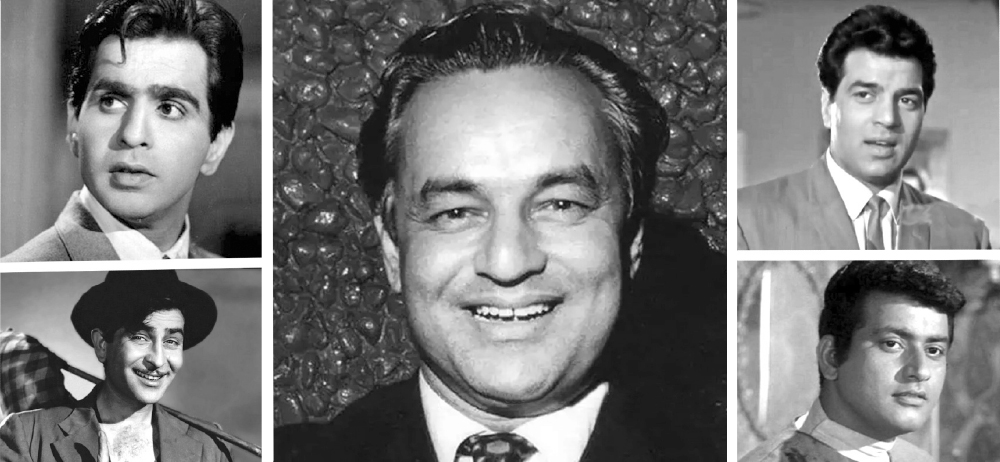
Another head of state — Benazir Bhutto, former Prime Minister of Pakistan — was an ardent Mukesh fan. While travelling on road, she would listen to one of the many Mukesh cassettes she kept in her car.
Perhaps the unlikeliest Mukesh fan was India’s celebrity spin-and-googly bowler B Chandrasekhar, who owned a large collection of Mukesh songs. Introduced to Mukesh at a recording studio, Chandrasekhar was tongue-tied. He subsequently visited Mukesh and his family often while in Bombay and dined out with his idol. It is said that Sunil Gavaskar was once troubled by Chandrasekhar’s googlies in a Ranji Trophy Bombay-Karnataka match. The strains of a Mukesh song from a transistor in the crowd wafted on to the pitch. Gavaskar went forward and told Chandrasekar “Did you hear that?” It was a tactic to distract Chandrasekhar by mentioning his idol! Mukesh has a son named Nitin. Chandra too named his son Nitin!
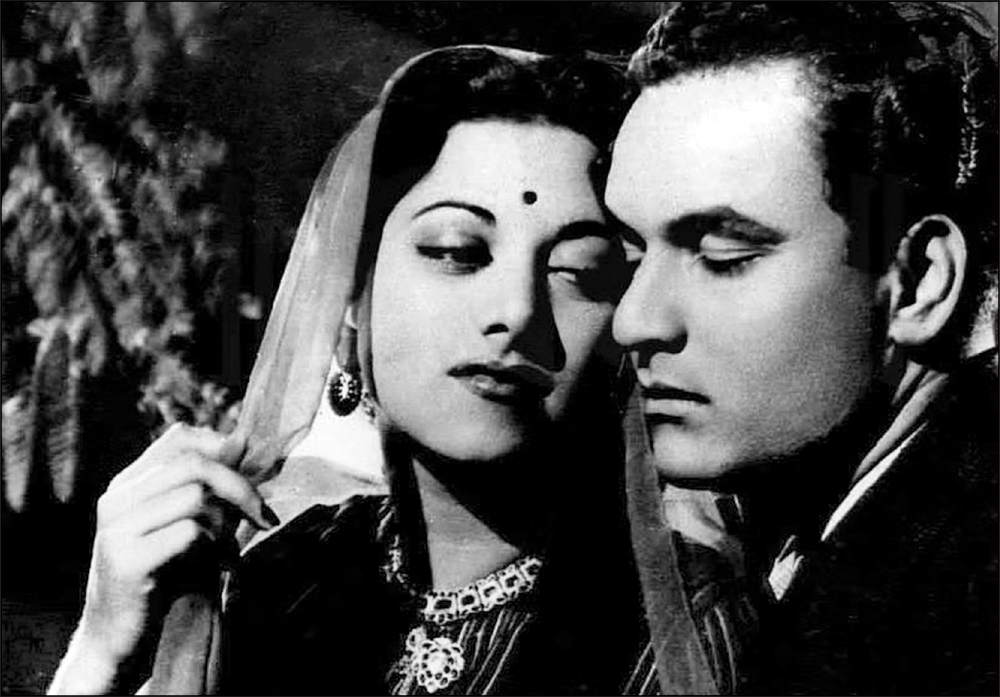
Mukesh’s voice plumbed the depths of despair with pathos, even sweetness. He rendered several romantic solos and duets, and some philosophical, introspective songs. But it is his sad songs that cast a spell: he captured many shades of melancholy — loneliness, love and longing, depression, despair, hopelessness — with hypnotic allure.
Early days
Mukesh was born in Delhi on July 22, 1923, to an engineer father and was the sixth child in a family of 10. He was not interested in studies and gave up education after SSC. During his teens, he discovered K L Saigal, was besotted for life and hummed his songs all the time. While he took up a government job, his mind and heart lay in music.
Dilip Kumar had been reluctant to act in Mela, but heard a recording of the Mukesh song Mera dil todnewale in the movie, and changed his mind.
A distant cousin, actor Motilal heard Mukesh sing. He was charmed, brought him to Bombay, and got him trained by a guru. After a few songs in films, Mukesh grabbed the attention of two composing giants — Anil Biswas initially, and later Naushad. The 1945 Dil jalta hai attracted much notice, while his song Gaaye ja geet milan ke (for Dilip-starrer Mela, 1948, composed by Naushad) was a hit. In fact, Dilip had been reluctant to act in Mela, but heard a recording of the Mukesh song Mera dil todnewale in the movie, and changed his mind.
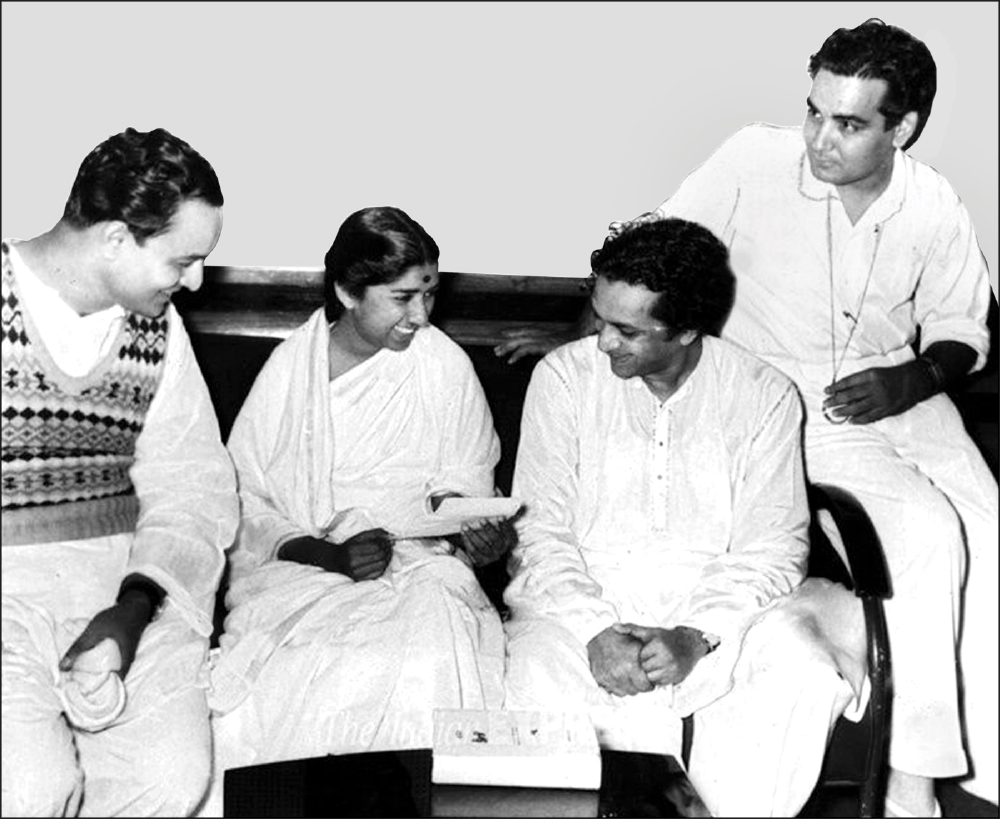
Andaz immortals
Mukesh mesmerised millions in the 1949 blockbuster Andaz which brought Raj Kapoor, Dilip and Nargis together (it never happened again!) The four Mukesh solos filmed on Dilip — Tu kahe agar, Jhoom jhoom ke nacho, Hum aaj kahin dil kho baite and Toote na dil toote na (the last song was rehearsed 23 times before Naushad okayed it), were classic melodies. Dilip rendering these songs on screen made for unforgettable visuals.
But it was Mukesh’s songs for Raj Kapoor around the early 1950s that took the music world by storm. Mukesh sang 13 hit songs (solos, duets with Lata or group songs) for six famous Raj Kapoor films from 1948 to 1953 — Aag, Barsaat, Awara, Aah, Shri 420 and Jagte Raho. All of them featured Nargis as heroine and Shankar Jaikishen-Shailendra as composers and script writer. The trio rewrote the story of Bollywood music. But my own favourite Mukesh song for Raj Kapoor is the angst-ridden Teri duniya mein dil lagta nahin, a Roshan gem from Bawre Nain (1950).
A blunder
However, Mukesh blundered away his fame and goodwill. He decided to become an actor, and later, a producer as well. A spate of undistinguished films resulted. While these films bombed, rival singers — Rafi, Kishore, Manna Dey, Hemant Kumar — turned out a stream of chartbusters. The singer who was a national rage a few years ago became a has-been.
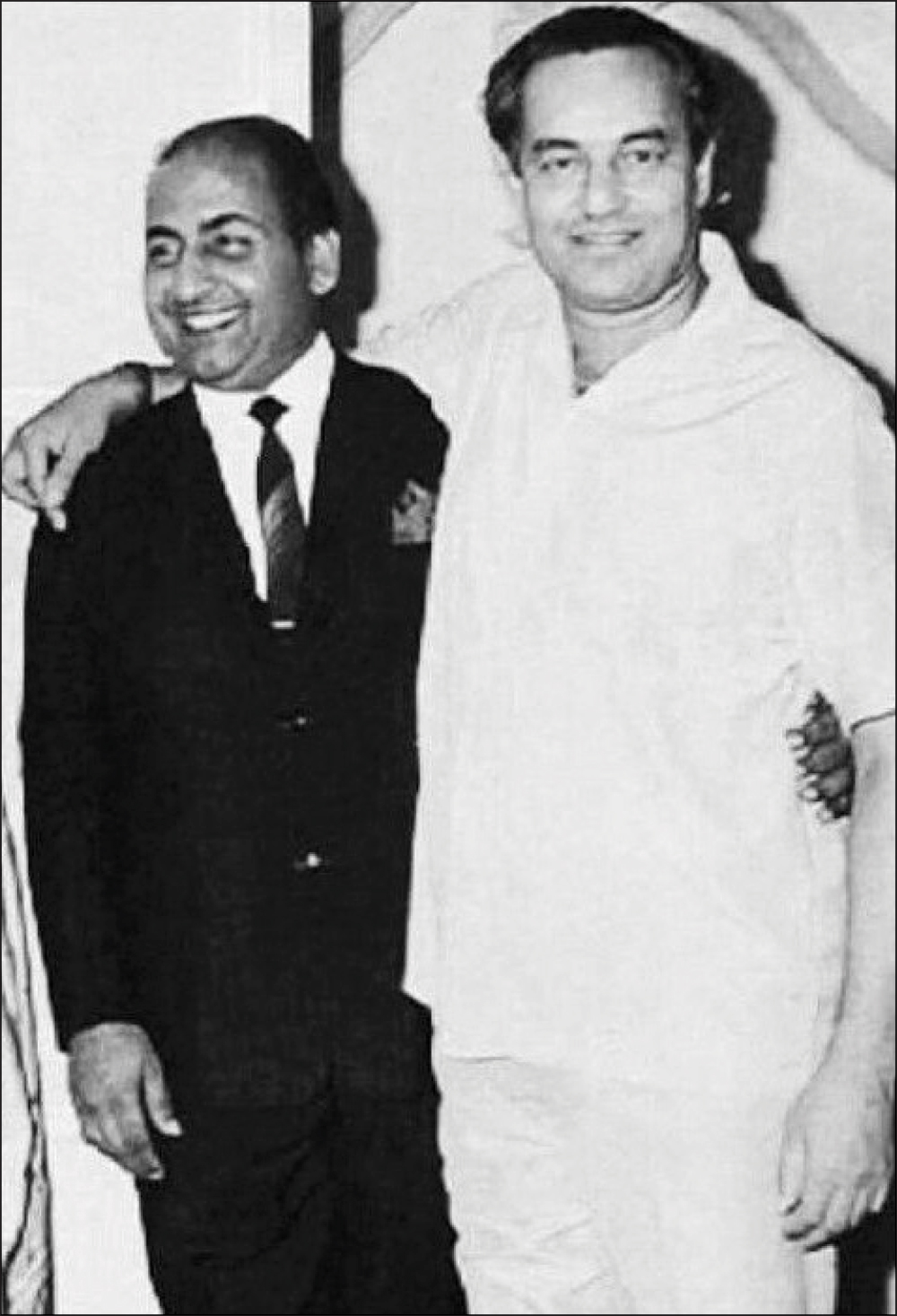
The mid-1950s were a bleak period. Contracts and money dried up. The local vegetable vendor loaned Mukesh money occasionally. Mukesh’s son Nitin was in Class 5, daughter Rita was in Class 3. They were barred from writing exams as they hadn’t paid the school fees. The two kids walked home on a stormy, rainy day, much to Mukesh’s anger and anguish.
Wonderful comeback
But his old friend Salil Chowdhury helped Mukesh begin a second avatar as singer, with Suhana safar aur yeh mausam haseen in the 1958 Madhumati, filmed on Dilip. The same year, Mukesh sang for Dilip again in Yahudi with Yeh mera deewanapan hai (Shankar-Jaikishen), and 1958 turned out to be a wonderful comeback year for Mukesh. He sang two poignant songs for Raj Kapoor — Woh subah kabhi to aayegi (Phir subah hogi) and Aaansoo bhari hai (in Parvarish). The success continued in 1959. Anari gave film fans two glorious Mukesh songs under the baton of Shankar-Jaikishen (Sab kuch seeka humne and Kisi ki muskurahaton pe ho nisar).
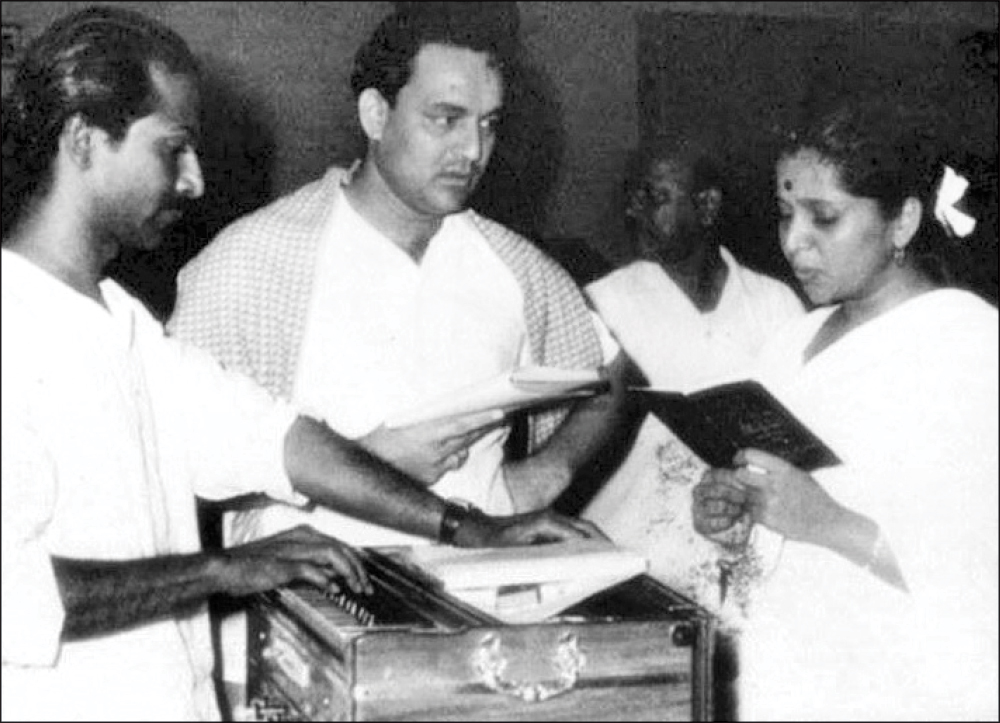
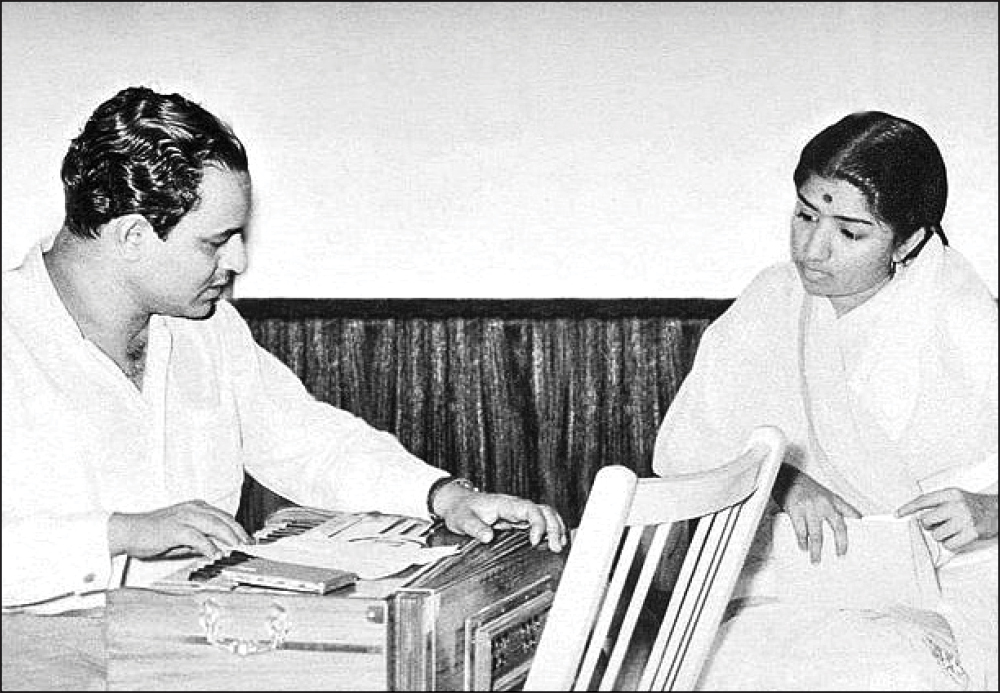
Mukesh went on to enjoy the most prolific phase of his career, sprinkled with numerous hits. He took his playback career very seriously, to make up for his blunder of the 1950s. He played a valuable role in the rise of Kalyanji-Anandji, something they acknowledged handsomely. He rendered hits for Salil Chowdhury, Shankar-Jaikishen and Madan Mohan and boosted the acting careers of both Manoj and Dharmendra.
To mention just a few of his best songs of the 1960s and 1970s: Saranga teri yaad me (Saranga, 1960); Chal ri sajni (Bombai Ka Babu, 1960); Mere toote hue dil se (Chhalia, 1960); Jaane wale ho sake to laut ke aana (Bandini, 1963); Dost dost na raha (Sangam, 1964); Ohre taal mile nadi ke jal mein (Anokhi Raat, 1967); Chandan sa badan (Saraswatichandra, 1968); Jaane kahan gaye woh din (Mera Naam Joker, 1970); Koi jab hamara hriday tod de (Purab aur Paschim, 1970); Kahin door jab din dhal jaaye (Anand, 1971); Kabhi Kabhi mere dil mein (1976).

He won the national award for the best male playback singer for the song Kai baar yuhi dekha hai (Rajnigandha,1974, music composed by Salil Chowdhury). He won four Filmfare awards: for the songs Sub kuch seeka humne (Anari, 1959, Shankar-Jaikishen); Subse bada nadan (Pehchan, 1970, Shankar-Jaikishen); Jai bolo beimaan ki (Beimaan, 1972, Shankar-Jaikishan); and Kabhi Kabhi mere dil me (Khayyam, 1976). In all, he sang 110 songs for Raj Kapoor, 46 for Manoj Kumar and 19 for Dilip Kumar. Mukesh’s last recorded song was Chanchal Sheetal Nirmal Komal for the 1978 Raj Kapoor movie Satyam Shivam Sundaram, with music composed by Laxmikant-Pyarelal.
Mukesh was totally free of envy or pride. He showered lavish compliments on Rafi, Kishore and Mahendra Kapoor whenever their songs appealed to him. College-going son Nitin once remarked that his friends drove cars to college while he, Mukesh’s son, took a bus. Mukesh quietly handed over his car key to Nitin, who was overjoyed. But he discovered that Mukesh had started travelling everywhere by bus. Nitin shame-facedly returned the car key!

Mukesh was the singer closest to Lata Mangeshkar. In 1976, Mukesh went on a concert tour of the US and persuaded Lata to join. On August 27, 1976, when the troupe was to perform in Detroit, Mukesh suffered a massive heart attack, his fifth. This time he didn’t survive. He was only 53. A tearful Lata brought his body to Bombay. Said Raj Kapoor “When Jaikishen died, I lost an arm, and another arm when Shailendra departed. But with Mukesh gone, I have lost my life.” Bollywood fans around the world were disconsolate. However, Mukesh’s unique power-packed yet tender voice continues to rule the airwaves.
The author is a senior journalist and a member of the Rotary Club of Madras South





